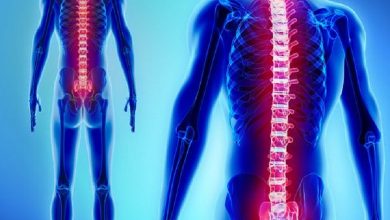Dietary Habits


Beyond Willpower: Diet Quality and Quantity Matter
It’s no secret that the amount of calories people eat and drink has a direct impact on their weight: Consume the same number of calories that the body burns over time, and weight stays stable. Consume more than the body burns, weight goes up. Less, weight goes down. But what about the type of calories: Does it matter whether they come from specific nutrients-fat, protein, or carbohydrate? Specific foods-whole grains or potato chips? Specific diets-the Mediterranean diet or the “Twinkie” diet? And what about when or where people consume their calories: Does eating breakfast make it easier to control weight? Does eating at fast-food restaurants make it harder? Check out the best
male enhancement pills.
There’s ample research on foods and diet patterns that protect against heart disease, stroke, diabetes, and other chronic conditions. The good news is that many of the foods that help prevent disease also seem to help with weight control-foods like whole grains, vegetables, fruits, and nuts. And many of the foods that increase disease risk-chief among them, refined grains and sugary drinks-are also factors in weight gain.Conventional wisdom says that since a calorie is a calorie, regardless of its source, the best advice for weight control is simply to eat less and exercise more. Yet emerging research suggests that some foods and eating patterns may make it easier to keep calories in check, while others may make people more likely to overeat.
This article briefly reviews the research on dietary intake and weight control, highlighting diet strategies that also help prevent chronic disease.
Macronutrients and Weight: Do Carbs, Protein, or Fat Matter?
When people eat controlled diets in laboratory studies, the percentage of calories from fat, protein, and carbohydrate do not seem to matter for weight loss. In studies where people can freely choose what they eat, there may be some benefits to a higher protein, lower carbohydrate approach. For chronic disease prevention, though, the quality and food sources of these nutrients matters more than their relative quantity in the diet. And the latest research suggests that the same diet quality message applies for weight control. Read more about Natural adderall.
Dietary Fat and Weight
Low-fat diets have long been touted as the key to a healthy weight and to good health. But the evidence just isn’t there: Over the past 30 years in the U.S., the percentage of calories from fat in people’s diets has gone down, but obesity rates have skyrocketed. (1,2) Carefully conducted clinical trials have found that following a low-fat diet does not make it any easier to lose weight than following a moderate- or high-fat diet. In fact, study volunteers who follow moderate- or high-fat diets lose just as much weight, and in some studies a bit more, as those who follow low-fat diets. (3,4) And when it comes to disease prevention, low-fat diets don’t appear to offer any special benefits. (5)
Part of the problem with low-fat diets is that they are often high in carbohydrate, especially from rapidly digested sources, such as white bread and white rice. And diets high in such foods increase the risk of weight gain, diabetes, and heart disease. (See Carbohydrates and Weight, below.)
For good health, the type of fat people eat is far more important that the amount (see box), and there’s some evidence that the same may be true for weight control. (6–9) In the Nurses’ Health Study, for example, which followed 42,000 middle-age and older women for eight years, increased consumption of unhealthy fats-trans fats, especially, but also saturated fats-was linked to weight gain, but increased consumption of healthy fats-monounsaturated and polyunsaturated fat-was not. (6)
Food and Diet

Beyond Willpower: Diet Quality and Quantity Matter
It’s no secret that the amount of calories people eat and drink has a direct impact on their weight: Consume the same number of calories that the body burns over time, and weight stays stable. Consume more than the body burns, weight goes up. Less, weight goes down. But what about the type of calories: Does it matter whether they come from specific nutrients-fat, protein, or carbohydrate? Specific foods-whole grains or potato chips? Specific diets-the Mediterranean diet or the “Twinkie” diet? And what about when or where people consume their calories: Does eating breakfast make it easier to control weight? Does eating at fast-food restaurants make it harder?
There’s ample research on foods and diet patterns that protect against heart disease, stroke, diabetes, and other chronic conditions. The good news is that many of the foods that help prevent disease also seem to help with weight control-foods like whole grains, vegetables, fruits, and nuts. And many of the foods that increase disease risk-chief among them, refined grains and sugary drinks-are also factors in weight gain.Conventional wisdom says that since a calorie is a calorie, regardless of its source, the best advice for weight control is simply to eat less and exercise more. Yet emerging research suggests that some foods and eating patterns may make it easier to keep calories in check, while others may make people more likely to overeat.
This article briefly reviews the research on dietary intake and weight control, highlighting diet strategies that also help prevent chronic disease.
Macronutrients and Weight: Do Carbs, Protein, or Fat Matter?
When people eat controlled diets in laboratory studies, the percentage of calories from fat, protein, and carbohydrate do not seem to matter for weight loss. In studies where people can freely choose what they eat, there may be some benefits to a higher protein, lower carbohydrate approach. For chronic disease prevention, though, the quality and food sources of these nutrients matters more than their relative quantity in the diet. And the latest research suggests that the same diet quality message applies for weight control.
Dietary Fat and Weight
Low-fat diets have long been touted as the key to a healthy weight and to good health. But the evidence just isn’t there: Over the past 30 years in the U.S., the percentage of calories from fat in people’s diets has gone down, but obesity rates have skyrocketed. (1,2) Carefully conducted clinical trials have found that following a low-fat diet does not make it any easier to lose weight than following a moderate- or high-fat diet. In fact, study volunteers who follow moderate- or high-fat diets lose just as much weight, and in some studies a bit more, as those who follow low-fat diets. (3,4) And when it comes to disease prevention, low-fat diets don’t appear to offer any special benefits. (5)
Part of the problem with low-fat diets is that they are often high in carbohydrate, especially from rapidly digested sources, such as white bread and white rice. And diets high in such foods increase the risk of weight gain, diabetes, and heart disease. (See Carbohydrates and Weight, below.)
For good health, the type of fat people eat is far more important that the amount (see box), and there’s some evidence that the same may be true for weight control. (6–9) In the Nurses’ Health Study, for example, which followed 42,000 middle-age and older women for eight years, increased consumption of unhealthy fats-trans fats, especially, but also saturated fats-was linked to weight gain, but increased consumption of healthy fats-monounsaturated and polyunsaturated fat-was not. (6)




